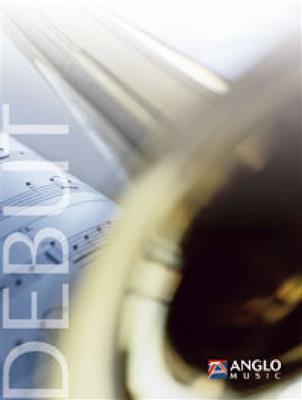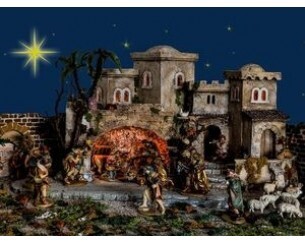Results
-
 £115.60
£115.60Feelings - Gaste
This song first became a hit by Brazilian singer Morris Albert. "Feelings" must be one of the most known love-songs of all time thanks to numerous recordings from artists like Ella Fitzgerald, Shirley Bassey, Nina Simone, Engelbert Humperdinck and Sarah Vaughan. The arrangement include parts that feature a soloist over a sectional accompaniment. Please watch the balance between soloist and band.
Estimated dispatch 5-14 working days
-
£74.95
Variations for Brass Band - Ralph Vaughan Williams
Estimated dispatch 5-14 working days
-
£69.95
Henry V - Ralph Vaughan Williams
Estimated dispatch 5-14 working days
-
£69.95
English Folk-Song Suite - Ralph Vaughan Williams
Estimated dispatch 5-14 working days
-
£24.95
Sea Songs - Ralph Vaughan Williams
Estimated dispatch 5-14 working days
-
 £24.95
£24.95Prelude On Rhosymedre - Ralph Vaughan Williams
Estimated dispatch 5-14 working days
-
 £59.99
£59.99In the Bleak Mid-Winter - Gustav Holst
Christina Rossetti wrote the words to this famous Christmas carol in 1872 in response to a request from the magazine Scribner's Monthly for a Christmas poem. They were set to music by Gustav Holst (1874-1934) for inclusion in the first edition (1906) of The English Hymnal, edited by his life-long friend, Ralph Vaughan Williams. Philip Sparke has carefully arranged the beautiful melody into this delightful version for brass band. A must for any Christmas concert.
Estimated dispatch 5-14 working days
-
£47.50
Shipston Prelude - Stephen Bulla
A beautiful offertory-style addition to the brass band repertoire. This endearing traditional English melody, originally collected and harmonised by Raph Vaughan Williams, is now included in many of today's hymn books. An uplifting piece for schools or church concerts, this skilfully crafted arrangement also makes a delightful warm-up piece.
Estimated dispatch 5-14 working days
-
 £30.00
£30.00O Little Town of Bethlehem
Based on an 1868 text written by Phillips Brooks and the hymn Forest Green (a tune collected by Ralph Vaughan Williams and first published in the 1906 English Hymnal) O Little Town of Bethlehem is perhaps one of the most widely recognised of all Christmas Carols. This arrangement resets the music as...
In Stock: Estimated dispatch 1-3 working days
-
£34.95
FATHER'S BLESSING, The (Brass Band Set) - Kenneth Downie
This music is a treatment of the tune that William Tomer wrote for the words 'God be with you till we meet again'. In recent years, Ralph Vaughan Williams' tune 'Randolph' has often been the preferred choice to accompany these words although this composer was drawn to the original tune. Serenity is the prevailing mood of the piece although there is chance for the band to 'open up' in the link passages.
Estimated dispatch 7-14 working days
